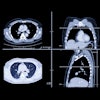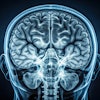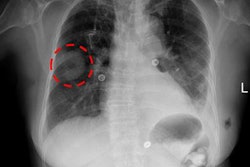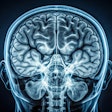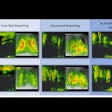Dear Artificial Intelligence Insider,
The surge of enthusiasm and rapid pace of development for artificial intelligence (AI) in medical imaging applications was fully evident at the Society for Imaging Informatics in Medicine's (SIIM) Conference on Machine Intelligence in Medical Imaging (C-MIMI) last week in Baltimore. Presentations from academic institutions, vendors, and even the U.S. Food and Drug Administration (FDA) offered an exciting glimpse into the progress that's been made and the potential for these algorithms to improve the quality and efficiency of radiology -- both in the U.S. and around the world.
For example, an algorithm developed by researchers from Massachusetts General Hospital is showing promise for detecting and classifying urinary stones based only on noncontrast single-energy CT images. Our coverage of the proof-of-concept study is this edition's Insider Exclusive, which you can access before our regular members.
An FDA representative was on hand at C-MIMI 2017 to share the agency's perspectives on machine learning and software development for medical image interpretation. Thanks to a recent FDA ruling, software developers of AI for medical imaging applications will find the regulatory path a little easier to navigate. Click here for all of the details.
In addition, Google executive and neuroradiologist Dr. Gregory Moore, PhD, discussed the firm's vision for medical imaging AI, as well as several Google AI initiatives, during another keynote talk at the meeting. Learn more by clicking here.
The dearth of large, well-curated datasets has been one of the biggest obstacles to creating AI algorithms for imaging applications. Fortunately, the U.S. National Institutes of Health has publicly released a database of more than 100,000 chest x-rays and corresponding data to spur the development of algorithms for detecting and diagnosing disease. Click here for our coverage.
Developers of deep-learning algorithms for medical imaging applications should be aware, though, of some important practical considerations, according to a recent SIIM webinar. Find out what you need to know by clicking here.
In other news, researchers from the University of California, San Francisco have obtained promising results from using AI to determine which patients need contrast for musculoskeletal MRI scans. Click here for our report.
AI continues to demonstrate considerable promise for the early detection of dementia and Alzheimer's disease. A recent study found that an AI algorithm can recognize the signatures of dementia on amyloid PET scans two years before the onset of symptoms, while another study showed that machine-learning technology has promise for diagnosing Alzheimer's disease before symptoms begin to affect daily living.
An AI algorithm can also estimate patient age from radiographs, speeding up radiologist assessment of these cases without compromising diagnostic accuracy, according to researchers from Asan Medical Center in Seoul, South Korea. Find out how by clicking here.
AI can also classify benign and malignant bone lesions on PET/CT images, showing potential to automate a time-consuming and subjective process for nuclear medicine physicians, concluded researchers from the University of Wisconsin in Madison. Click here for our coverage.
Is there a story you'd like to see covered in the Artificial Intelligence Community? Please feel free to drop me a line.



